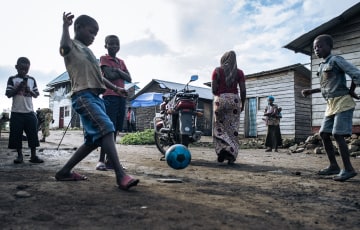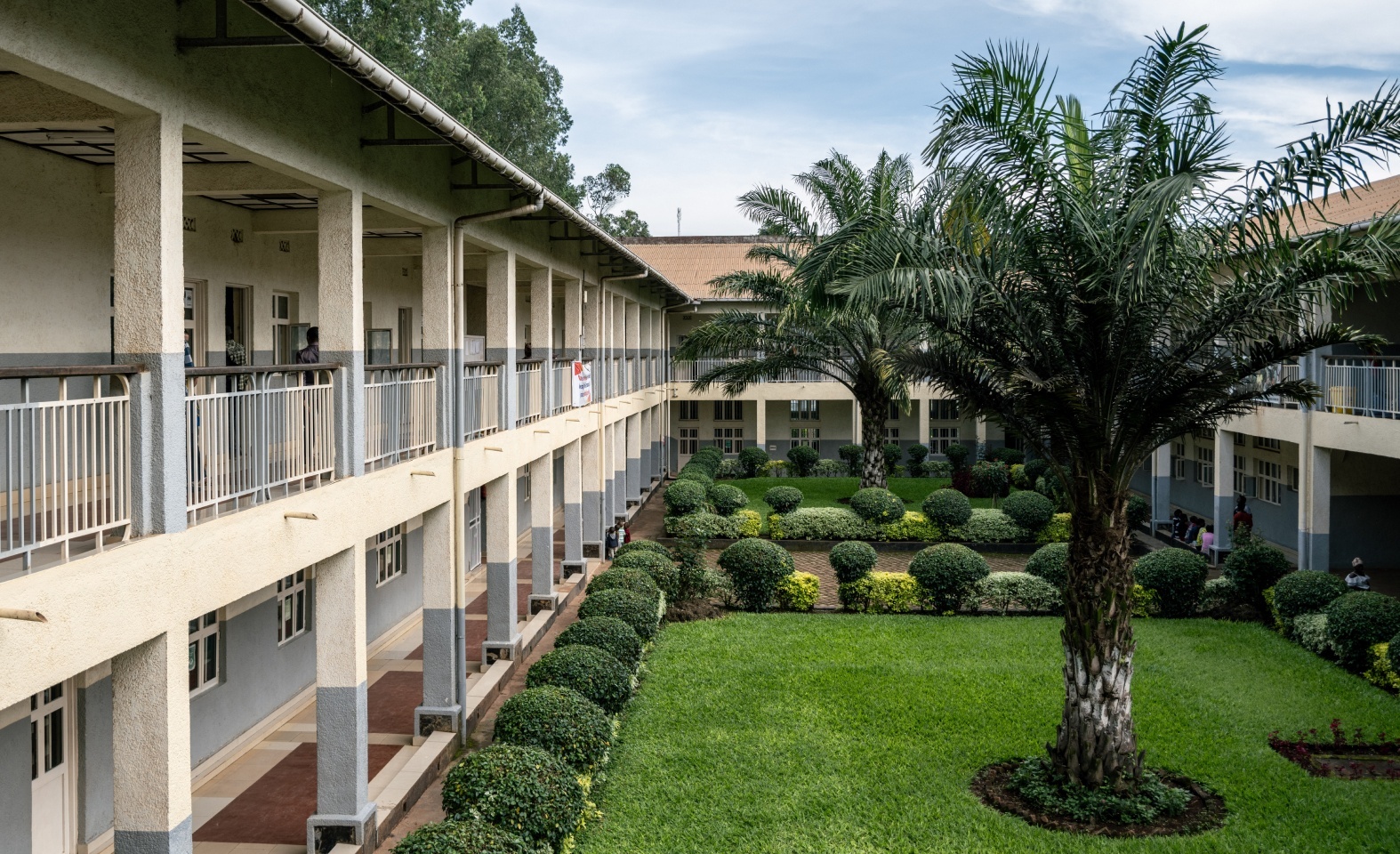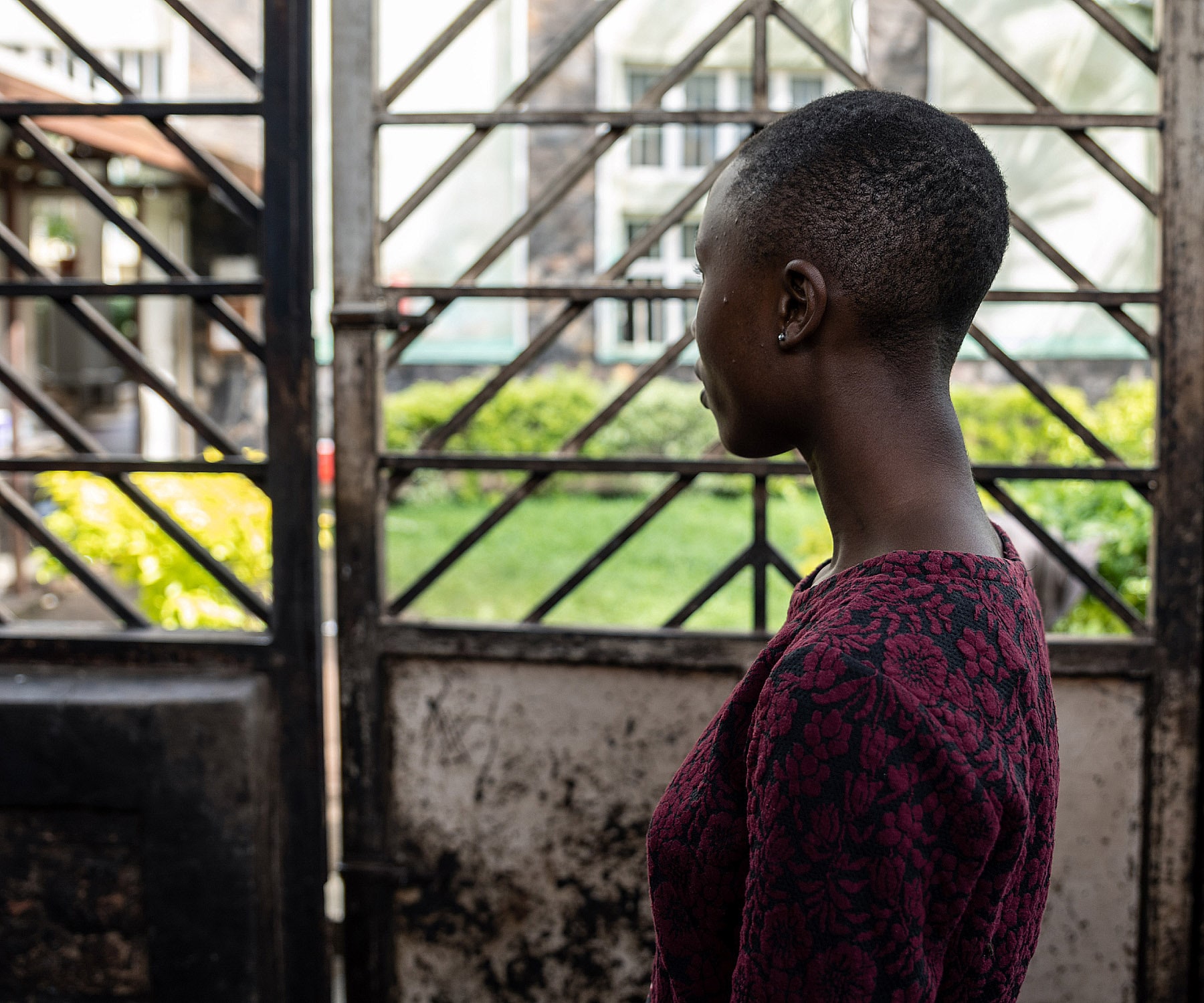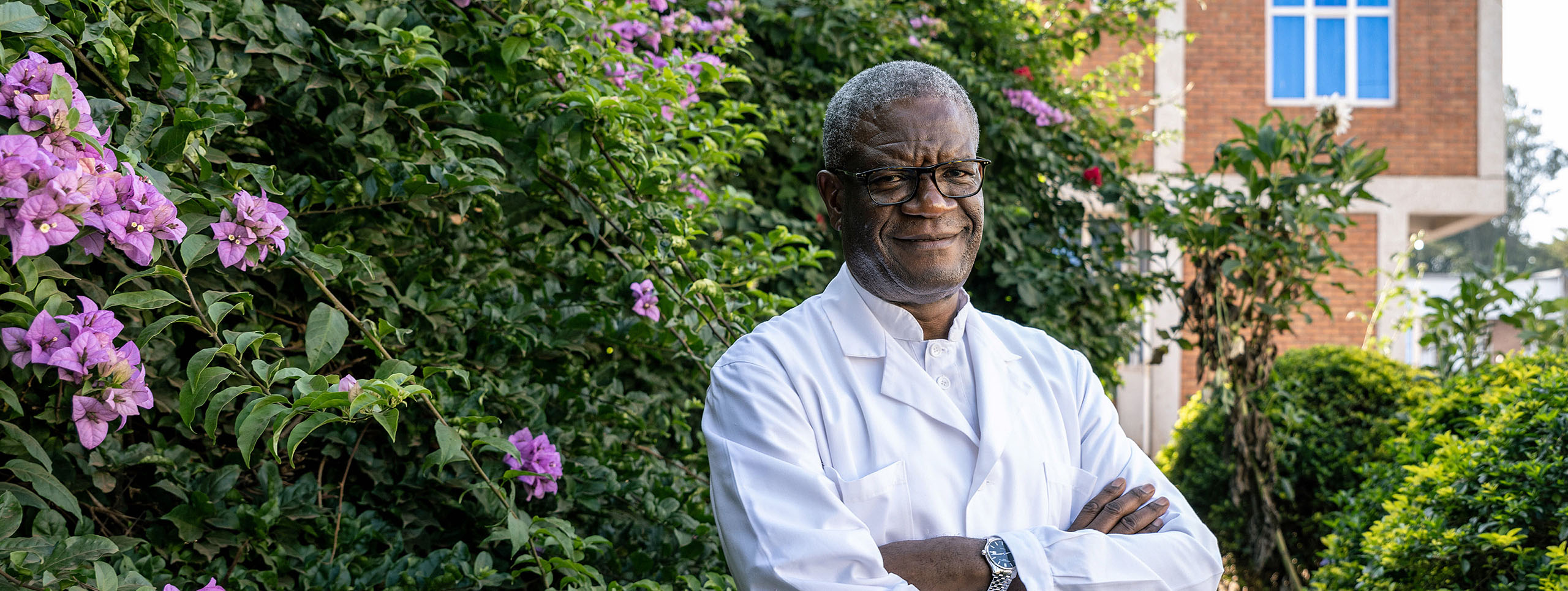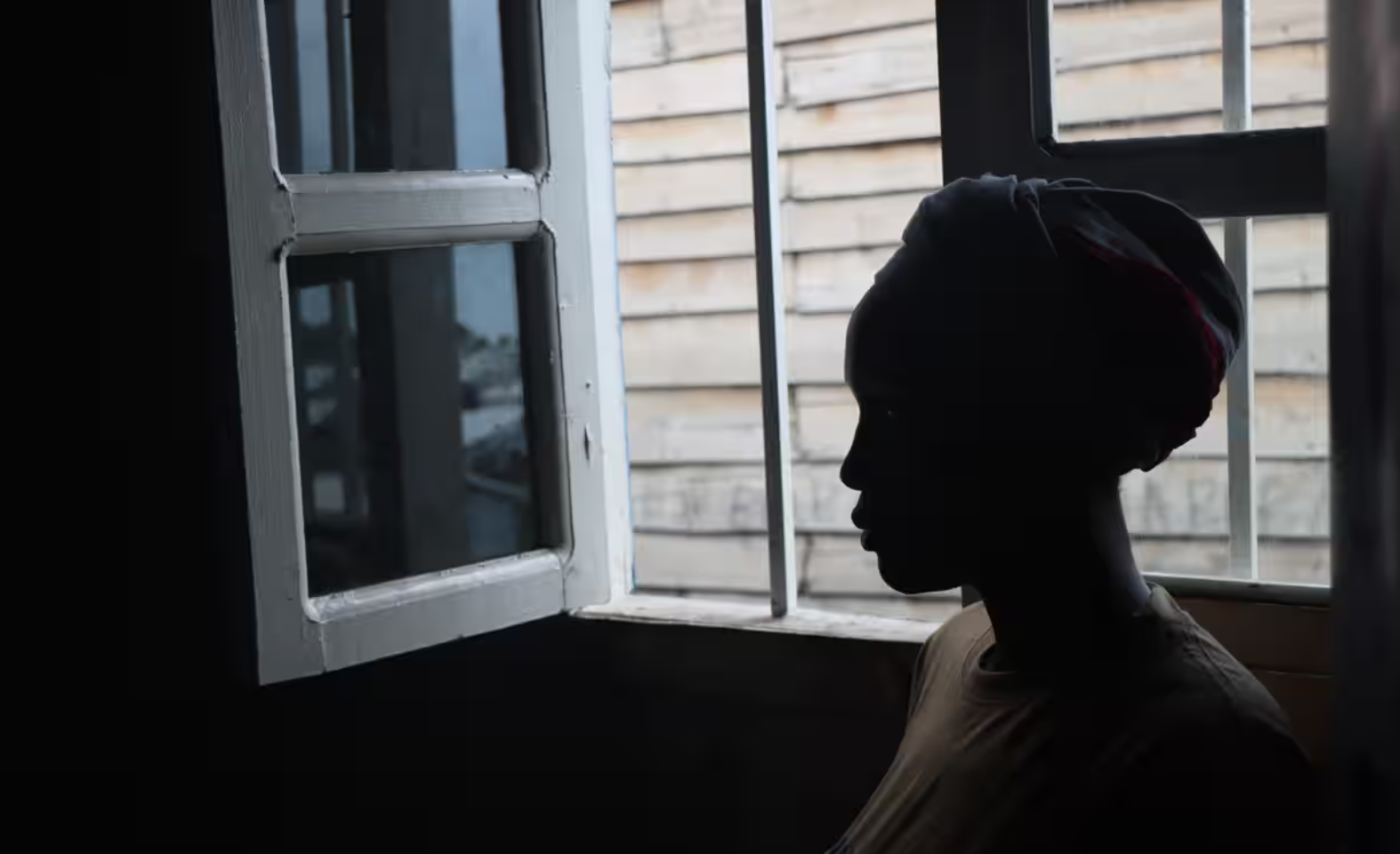62 Congolese Civil Society Groups, Activists, and International NGOs Join in Kinshasa Declaration Today Calling for Clean National Elections in 2023
Coalition Warns Democratic Elections in Jeopardy, Urges US and International Community to Support Civic Education and Electoral Observation
March 17, 2022 (Kinshasa, Democratic Republic of Congo) – Today at a press conference in Kinshasa, a coalition of leading Congolese civil society and human rights groups, joined by The Sentry, Human Rights Watch, Panzi Foundation, and other international NGOs, will present a jointly signed declaration calling for the Democratic Republic of Congo’s 2023 national elections to be free, credible, transparent, inclusive, and democratic.
Signatories to the declaration:
1. ASADHO
2. La Ligue des Electeurs (LE)
3. Agir pour des Elections Transparentes et Apaisées (AETA)
4. Observatoire de la Dépense Publique (ODEP)
5. LUCHA
6. FILIMBI
7. AFREWATCH
8. UNIS
9. Dynamique des Politologues (DYPOL)
10. CDC ITURI
11. Initiative Bonne Gouvernance et Droits Humains
12. OEARSE
13. Justice Pour Tous
14. AFRIKKI
15. Solidarité (AJS) TAL-LAFI
16. PAX
17. Réseau d’Organisations des Droits Humains et d’Education Civique d’Inspiration Chrétienne (RHODECIC)
18. Centre de Recherche sur l’Environnement, la Démocratie et les Droits de l’Homme (CREDDHO)
19. Alarme pour la Prise de Conscience aux Devoirs et Droits Humains (APCDDH)
20. Association Congolaise pour le Droit de l’Homme (ACDHO)
21. Association des Défenses des Droits de l‘Homme, des victimes des Violences sexuelles et d’encadrement des enfants en rupture avec la famille (ADDHVER)
22. Centre d’Etudes et de Formation Populaire pour les Droits de l’Homme (CEFOP-DH)
23. Centre de Recherche et de Promotion des Droits de l’Homme (CRPDH)
24. Cercle National de Réflexion sur la Jeunesse en RDC (CNRJ-RDC)
25. Collectif des Femmes Avocates pour la Promotion des Droits Humains (COFAP/DH)
26. Convention pour le Développement du peuple autochtone Pygmées (CPDA)
27. Coordination des Personnes Handicapées du Kasaï – Oriental (COPHAKOR)
28. Dynamique pour la défense des Droits des Vulnérables (DDV)
29. Espoir de Vie pour Tous (ESVIT)
30. Groupe d’actions pour les Jeunes Nécessiteux (GAJEN)
31. Institut Congolaise pour le Droit de l’Homme (ICDH)
32. Juriste en Action (JURAC)
33. La voix des Opprimés (VDO)
34. La voix Intègre de Communautés Opprimées (VICOP)
35. League of Youth for the Renaissance of Congo (LYREC)
36. Les Amis de Nelson Mandela pour la défense des Droits Humains (ANMDH)
37. Les Amis de Nelson Mandela pour les Droits Humains (ANMDH)
38. Maman n’a Nzela ya Développement (MND)
39. Nouvelle Dynamique de la Jeune Femme (NDJF)
40. Nouvelles Dynamiques pour le Développement Rural Intégral (NODRI)
41. Protégions la Vie Humaine (PVH)
42. Réseau International des Activistes des Droits de l’Homme (RIADH)
43. Réseaux des Femmes pour la protection de Droit de l’Enfant et de la Femme (REFEDEF)
44. Solidarité des Albinos du Kasaï-Oriental (SAKOR)
45. Solidarité des Ongs pour la Démocratie, Education civique et Droit de Homme (SOLIDEC-K/DH)
46. Trois Rivières (TR)
47. Vivre avec Handicap au Congo (VIHANDICO)
48. ABFEC – Action Congo asbl
49. Mr. Jean Claude Mputu
50. Mrs. Marie Madeleine Kalala
51. The Sentry
52. Panzi Foundation
53. Human Rights Watch (HRW)
54. Action Kivu
55. Never Again Coalition
56. American Jewish World Service
57. Jewish World Watch
58. Crane Center for Mass Atrocity Prevention
59. Stop Genocide Now
60. Elizabeth Barad, Member, NYC Bar Association
61. Anthony W. Gambino, Former USAID Mission Director, DRC
62. Stephen R. Weissman, Former Staff Director, US House of Representatives Subcommittee on Africa
The signatories warn that preparations for next year’s national elections “have been marred by irregularities and violations of fundamental procedures, all amid suspicions of corruption.”
The declaration notes that the official results of the two previous elections, in 2011 and 2018, were widely questioned by domestic and international civil society, maintaining that “the international community had not sufficiently supported free and fair elections.” The signatories underlined that the “crisis of legitimacy” stemming from “the absence of credible and inclusive elections” has been “the main source of the various conflicts the DRC is going through.” Armed conflicts in the Eastern Congo took an estimated 2,347 lives in 2021 and have displaced over 5 million people, according to Human Rights Watch.
The statement calls upon the Congolese National Independent Election Commission, with backing from government institutions, to respect its commitments to operate in “a transparent, independent and inclusive manner” and fulfill its mandate to organize “free, credible, transparent, inclusive and democratic elections.” And it urged Parliament to “carry out an inclusive and consensual review of the electoral law, taking care not to jeopardize the deadline.”
The declaration further appeals to the international community to use “targeted sanctions” at each stage of the process against individuals or institutions threatening “the smooth running of the process.” Emphasizing their willingness to play their role as “guardians of this process” by observing and reporting on the elections, they are requesting international peace and democracy institutions to “provide all the necessary support to civic education and electoral observation efforts.” In addition, they welcome DRC President Felix Tshisekedi’s call for “international election observation.”
The US government helped finance a major domestic civic education and election observation effort by the Catholic Church before and during the 2018 elections but then failed to support its findings of election fraud. Thus far, the State Department and USAID have not announced a renewed large-scale program for 2023.
Full text of the declaration (Version française ci-dessous):
Civil Society Declaration Concerning Elections in the Democratic Republic of the Congo
We, the undersigned members of civil society from the Democratic Republic of the Congo (DRC) and around the world, are united in support for the rights of the Congolese people to freely and democratically elect their leaders in accordance with article 5 of the Congolese Constitution, which states: “La souveraineté nationale appartient au peuple. Tout pouvoir émane du peuple qui l’exerce directement par voie de référendum ou d’élections et indirectement par ses représentants.” (“National sovereignty belongs to the people. All power emanates from the people who exercise it directly through referendum or elections and indirectly through their representatives.”).
In the preamble to the Congolese Constitution, the crisis of legitimacy is identified as the main source of the various conflicts that the DRC is going through. And the fundamental cause of this situation is the absence of credible and inclusive elections. It is, therefore, a fundamental responsibility of the Congolese government to fully support the organization of elections as set out by, and as required under, the Congolese Constitution and the government’s program, which provides in particular “to ensure and perpetuate the process of democratic alternation in summit of the State by respecting constitutional deadlines.”
In 2011, civil society, both in the DRC and internationally, questioned the legitimacy of the officially announced results. The most recent elections, which were due to be held in 2016, were postponed until 2018. The official results declared in January 2019 have also been questioned by civil society in the DRC and abroad. These two elections were marred by serious irregularities and violations of the fundamental requirements of the Constitution and Congolese laws. Unfortunately, the international community did not sufficiently support free and fair elections in these previous electoral processes.
We fear that the next elections are also going to be problematic. Already, initial preparations have been marred by irregularities and violations of fundamental procedures, all amid suspicions of corruption. In addition, it is critical to note the urgency to implement the recently published roadmap by the Congolese National Independent Electoral Commission (CENI) in order to complete all the necessary steps to guarantee the respect of deadlines, transparency, and credibility of the elections.
We call on the CENI to respect its commitments to operate in a transparent, independent, and inclusive manner, and to fulfil its crucial mandate to organize free, credible, transparent, inclusive, and democratic elections. There can be no question of linking this electoral process to others that could delay it. Thus, we ask the CENI to publish the final electoral calendar as soon as possible. We call on the President of the DRC, the Prime Minister, the Congolese Parliament, and other state actors to fulfil their duty by providing the CENI with all the necessary means for the achievement of these objectives, in order to use this process as an opportunity to restore trust between all parties involved. Along the same lines, we urge parliamentarians to carry out an inclusive and consensual review of the electoral law, taking care not to jeopardize the deadline. We also call on Justice, in particular the Constitutional Court and the Appeal Court, to fully play its role in guaranteeing that the democratic choices of the voters are respected.
We support the use, at each stage of the process, of targeted sanctions and other tools that would target any individual and/or institution that threatens the smooth running of the process.
We are committed to play our role as guardians of this process. We believe that civil society observers, from both Congolese and international organizations, should have all the necessary approvals and freedom to observe and report on the upcoming elections. Therefore, we call on international institutions committed to peace and democracy to provide all the necessary support to civic education and electoral observation efforts. In this regard, we welcome the President of the DRC’s call for international election observation, and we call for the mobilization of the United Nations, the African Union, the European Union, the United States of America, and all the friends of the DRC to make it a reality.
Déclaration de la société civile concernant les élections en République démocratique du Congo
Nous, soussignés, membres de la société civile de la République démocratique du Congo (RDC) et du monde entier, sommes unis pour soutenir les droits du peuple congolais à élire librement et démocratiquement ses dirigeants conformément à l’article 5 de la Constitution congolaise. C’est pourquoi nous lançons cet appel solennel au gouvernement congolais et à la communauté internationale pour veiller dès maintenant à ce que les prochaines élections soient véritablement libres, inclusives, transparentes et démocratiques et que personne ne puisse travestir les résultats sortis des urnes.
Dans le préambule de la Constitution congolaise, la crise de légitimité est identifiée comme la source principale des différents conflits que traverse la RDC. Et la cause fondamentale de cette situation est l’absence d’élections crédibles et inclusives. C’est donc une responsabilité fondamentale du gouvernement congolais de soutenir pleinement l’organisation d’élections telles que prévues et requises par la Constitution congolaise et le programme du gouvernement, qui prévoit notamment « d’assurer et pérenniser le processus d’alternance démocratique au sommet de l’État par le respect des échéances constitutionnelles ».
En 2011, la société civile, tant au Congo qu’à l’international, a remis en cause la légitimité des résultats annoncés officiellement. Les élections les plus récentes, qui devaient se tenir en 2016, ont été reportées à 2018. Les résultats officiels déclarés en janvier 2019 ont également été remis en question par la société civile au Congo et à l’étranger. Ces deux élections ont été entachées d’importantes irrégularités et violations des exigences fondamentales de la Constitution et des lois congolaises. Et malheureusement, la communauté internationale n’a pas suffisamment soutenu des élections libres et équitables lors de ces précédents processus électoraux.
Nous craignons que les prochaines élections nationales ne posent également des problèmes si on ne fait pas attention. Déjà, les préparatifs initiaux ont été entachés d’irrégularités et de violations de procédure, le tout sur fond de soupçons de corruption. En outre, il est important de relever l’urgence à exécuter la feuille de route récemment publiée la Commission électorale nationale indépendante congolaise (CENI) afin d’achever toutes les étapes nécessaires pour garantir le respect des délais, la transparence et la crédibilité des élections.
Nous appelons la CENI à respecter son engagement à fonctionner de manière transparente, indépendante et inclusive, et à remplir son mandat crucial d’organiser des élections libres, crédibles, transparentes, inclusives, et démocratiques. Il ne peut être question de lier ce processus électoral à d’autres qui pourraient le retarder. Ainsi, nous demandons à la CENI de publier au plus vite le calendrier électoral définitif. Nous appelons le Président de la République, le Premier Ministre, le Parlement congolais et les autres acteurs étatiques à s’acquitter de leur devoir en mettant à la disposition de la CENI tous les moyens nécessaires pour la réalisation de ces objectifs, considérant ce processus comme une opportunité de rétablir la confiance entre toutes les parties prenantes. Dans le même ordre d’idées, nous exhortons les parlementaires à procéder à une révision inclusive et consensuelle de la loi électorale en veillant à ne pas mettre en danger le délai. Nous interpellons également la Justice, en particulier la cour constitutionnelle et la cour d’appel, afin qu’elle joue pleinement son rôle, notamment en garantissant que le choix démocratiques du peuple soit respecté.
Nous soutenons l’utilisation, à chaque étape du processus, de sanctions ciblées et d’autres outils qui cibleraient tout individu ou institution qui menacerait le bon déroulement du processus.
Nous nous engageons à jouer notre rôle de gardiens de ce processus. Nous pensons que les observateurs de la société civile, tant des organisations congolaises qu’internationales, doivent bénéficier de toutes les autorisations et libertés nécessaires pour observer les prochaines élections et en rendre compte. C’est pourquoi nous en appelons aux institutions internationales éprises de paix et de démocratie d’apporter tout le soutien nécessaire aux efforts d’éducation civique et d’observation électorale. A cet égard, nous saluons l’appel du Président de la République à l’observation électorale internationale et demandons la mobilisation des Nations-Unies, de l’Union Africaine, de l’Union Européenne, des États-Unis d’Amérique et de tous les amis du Congo pour en faire une réalité.



